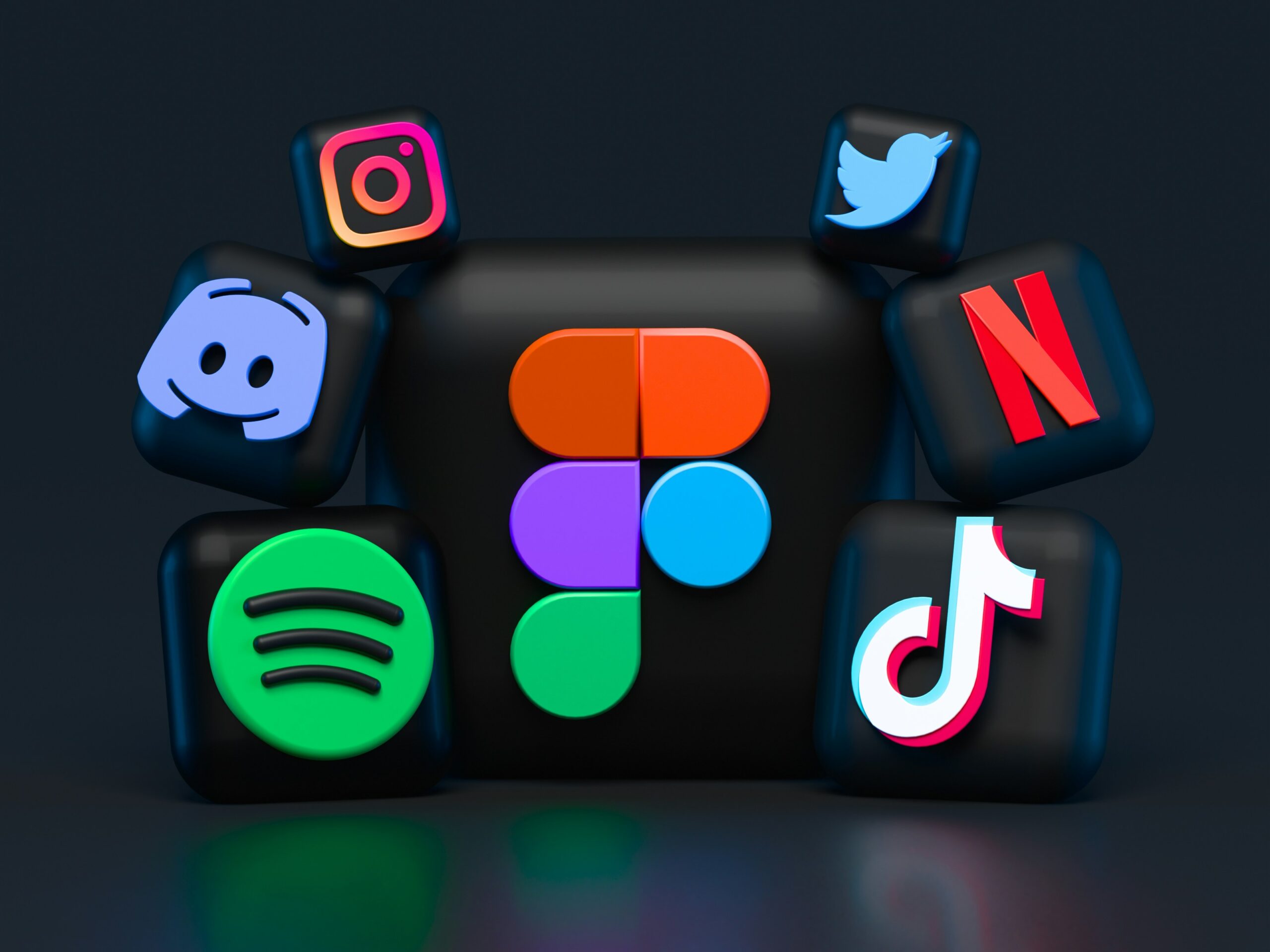

Discover Essential Digital Marketing Services for Businesses
Introduction to Digital Marketing Services
In a world where consumers spend over 7 hours daily online, digital marketing is no longer optional—it’s the lifeblood of modern business success. Digital marketing services refer to a broad range of online tactics and strategies designed to connect brands with their target audiences through digital channels such as search engines, social media, email, and websites. From building brand awareness to generating leads and driving sales, digital marketing offers scalable solutions for businesses of all sizes.
Why Digital Marketing Is Essential in 2025
As businesses continue to evolve in the fast-paced digital landscape, the significance of digital marketing has become increasingly vital, particularly in 2025. With the proliferation of technology and the ever-growing presence of online consumers, digital marketing offers unparalleled opportunities for brands to reach and engage their target audiences. This year marks a turning point as companies recognize that traditional marketing methods can no longer compete with the precision and effectiveness of digital strategies. By leveraging data analytics, businesses can now gain insights into consumer behavior and preferences, allowing them to tailor their messaging and offerings more accurately. This not only enhances customer satisfaction but also drives higher conversion rates, proving that digital marketing is not just an option but a necessity for future success. Digital behavior has evolved rapidly, and so have search engine algorithms. Businesses that want to thrive in 2025 must understand the critical importance of digital marketing services. Here’s why:
Consumer Behavior Has Shifted
In recent years, consumer behavior has undergone a significant transformation, shaped by various factors such as technological advancements, changing societal norms, and economic fluctuations. One of the most notable shifts has been the rapid adoption of e-commerce, driven by the convenience and accessibility of online shopping. Consumers now prioritize instant gratification, often opting for online purchases that can be delivered to their doorsteps within days, or even hours. This behavior reflects a broader trend where immediacy and efficiency are highly valued, leading brands to adapt their strategies to cater to these expectations. Retailers are increasingly investing in omnichannel approaches, integrating online and offline experiences to create seamless customer journeys.
- Over 80% of consumers research online before making a purchase.
- Voice and AI-based search are shaping how people discover products.
Algorithm Changes Demand Better Strategies
In the ever-evolving landscape of digital marketing, algorithm changes have become a pivotal factor influencing the strategies employed by brands and businesses. These modifications, often implemented by major platforms such as Google and social media networks, can substantially impact visibility, engagement, and overall online performance. As algorithms are designed to improve user experience and deliver more relevant content, marketers must adapt their strategies to align with these shifts. This necessitates a keen understanding of both the technical aspects of algorithms and the underlying consumer behavior they aim to enhance.
- Google’s March 2024 Core Update prioritizes quality, experience-driven content.
- Meta, TikTok, and YouTube algorithms now prefer engagement over followers.
Competition Is Fierce
Competition in today’s market is more intense than ever, driven by rapid technological advancements and the globalization of industries. Businesses across sectors find themselves in a relentless race not just for customers, but for their attention and loyalty. With a vast array of choices available at consumers’ fingertips, organizations must innovate and adapt continuously to stand out in a crowded landscape. From small startups to established giants, every player is striving to carve out a unique niche, leading to a dynamic ecosystem where agility and creativity become essential traits for success. Digital marketing levels the playing field, giving smaller businesses a chance to compete with large corporations.
Types of Digital Marketing Services
In today’s fast-paced digital landscape, various types of digital marketing services are essential for businesses seeking to establish a robust online presence. These services encompass a wide range of strategies aimed at reaching target audiences effectively, fostering engagement, and ultimately driving conversions. One of the most fundamental types of digital marketing service is Search Engine Optimization (SEO). This process involves optimizing a website’s content and structure to improve its ranking on search engine results pages, making it easier for potential customers to discover the brand. Effective SEO hinges on keyword research, content quality, and backlinks, ensuring that a business not only attracts traffic but also maintains relevancy in a competitive market. Let’s explore the full spectrum of digital marketing services and how they contribute to a successful online presence.
A. Search Engine Optimization (SEO)
Search Engine Optimization (SEO) is an essential digital marketing strategy aimed at enhancing a website’s visibility on search engine results pages (SERPs). By optimizing elements such as keywords, meta tags, and content quality, businesses can significantly improve their chances of ranking higher in organic search results. This not only drives greater traffic to their websites but also boosts brand credibility, as users tend to trust sites that appear prominently in search listings. Effective SEO encompasses both on-page and off-page strategies, with on-page optimization focusing on enhancing the website itself while off-page tactics involve building external links and improving domain authority through various means. SEO is the backbone of any successful digital strategy. It involves optimizing your website and content to appear higher on search engine results pages (SERPs).
Key Elements:
- On-page SEO (keyword optimization, meta tags, schema)
- Technical SEO (site speed, crawlability, mobile UX)
- Off-page SEO (link building, authority building)
- Local SEO (Google Business Profile, local citations)
SEO Stats: Businesses with a strong SEO strategy enjoy 53% more organic traffic.
B. Pay-Per-Click Advertising (PPC)
Pay-Per-Click Advertising (PPC) is a sophisticated digital marketing strategy that allows businesses to drive targeted traffic to their websites by paying for clicks on their ads. Unlike traditional advertising methods that require upfront payments for ad placements, PPC operates on a model where advertisers are only charged when users actually click on their ads. This approach makes it a cost-effective solution, enabling companies to set a clear budget while precisely measuring return on investment (ROI). Prominent platforms such as Google Ads and Facebook Ads offer businesses the opportunity to create ads that appear in relevant search results or social media feeds, ensuring that the right audience sees their message at the right time. PPC involves running paid ads on platforms like Google Ads, Bing, and social media.
PPC Services Include:
- Keyword research & bidding
- Google Search & Display campaigns
- YouTube ads
- Remarketing strategies
- Landing page optimization
Tip: Combine PPC with SEO for a full-funnel digital approach.
C. Social Media Marketing (SMM)
Social Media Marketing (SMM) has emerged as a pivotal component of contemporary digital marketing strategies, enabling businesses to connect with their audience on platforms where they already engage daily. By leveraging channels such as Facebook, Instagram, Twitter, and LinkedIn, brands can amplify their reach, cultivate relationships, and foster community engagement. SMM is not merely about promoting products or services; it’s about creating a narrative that resonates with consumers, humanizes the brand, and encourages dialogue. This strategy empowers companies to utilize targeted advertising, track performance metrics, and gather valuable insights about their consumer base, allowing for a more personalized approach to marketing. Social media isn’t just for engagement anymore—it’s a performance-driven sales channel.
Popular Platforms:
- Facebook & Instagram
- LinkedIn for B2B
- Twitter/X for trends
- TikTok for younger audiences
- Pinterest for eCommerce
SMM Services:
- Content planning & calendar
- Ad campaign management
- Influencer outreach
- Analytics & reporting
D. Content Marketing
Content marketing is a strategic approach focused on creating and distributing valuable, relevant, and consistent content to attract and engage a clearly defined audience. By prioritizing the needs and interests of potential customers, businesses can establish themselves as thought leaders in their industry, build trust, and foster lasting relationships. Unlike traditional marketing, which often interrupts consumers with direct sales pitches, content marketing seeks to provide value upfront, encouraging potential customers to interact with the brand in a meaningful way. This method not only enhances brand visibility but also drives sustainable growth by nurturing leads through the customer journey. Quality content builds trust, educates prospects, and improves SEO rankings.
Content Formats:
- Blogs and articles
- Whitepapers and eBooks
- Infographics
- Webinars and case studies
Benefits:
- Builds brand authority
- Supports lead generation
- Fuels email and SEO strategies
E. Email Marketing
Email marketing is a powerful digital marketing strategy that involves sending emails to a targeted audience with the aim of promoting products, services, or brand awareness. This form of communication allows businesses to engage directly with their customers, making it a highly effective channel for building relationships and fostering loyalty. By delivering relevant content, special offers, and personalized messages, email marketing helps brands connect with their audience on a more intimate level. With its ability to track open rates, click-through rates, and conversions, businesses can easily measure the effectiveness of their campaigns and make data-driven decisions to optimize future efforts. One of the highest-ROI marketing channels when done right.
Services Include:
- Newsletter setup and design
- Drip campaigns
- Segmentation & automation
- A/B testing
ROI Alert: Email marketing returns $36 for every $1 spent.
F. Conversion Rate Optimization (CRO)
Conversion Rate Optimization (CRO) is a pivotal aspect of digital marketing that focuses on enhancing the percentage of website visitors who complete a desired action, such as making a purchase or signing up for a newsletter. By analyzing user behavior and website performance, businesses can identify areas for improvement and implement strategies that lead to higher conversion rates. This process often involves a combination of data analysis, user experience (UX) design, and effective copywriting, all aimed at creating a seamless and engaging online experience for potential customers. CRO focuses on turning your traffic into paying customers.
Tactics Include:
- A/B testing
- User behavior analytics (heatmaps)
- UX/UI adjustments
- CTA optimization
G. Online Reputation Management (ORM)
Online Reputation Management (ORM) is a critical aspect of brand strategy that focuses on monitoring, influencing, and managing an individual or organization’s online presence. In today’s digital age, where information is readily accessible and viral content can spread within seconds, the significance of ORM has heightened immensely. This practice encompasses a wide array of tactics, from search engine optimization (SEO) to social media management, all aimed at promoting positive content and mitigating the impact of negative reviews or news. Professionals in ORM work diligently to craft a favorable online narrative, making sure that when potential customers or clients search for a brand, they encounter a favorable impression that reflects the desired image and values. A positive digital reputation influences both SEO and conversions.
ORM Includes:
- Review generation and response
- Negative content removal
- Brand monitoring
- Crisis management
H. Influencer Marketing
Influencer marketing has emerged as a powerful strategy in the digital landscape, bridging the gap between brands and their target audiences in an authentic manner. By leveraging the reach and credibility of key influencers—individuals who possess a significant following and engage actively with their communities—brands can effectively enhance their visibility and foster trust. This approach capitalizes on the influencers’ ability to create genuine connections, allowing brands to communicate their messages in a relatable format that resonates with potential customers. As consumers continue to become more discerning and skeptical of traditional advertising methods, influencer marketing offers a fresher, more engaging alternative that feels more personal and trustworthy. Influencer partnerships generate trust-based marketing through social proof.
Key Steps:
- Influencer discovery
- Outreach and negotiation
- Campaign execution
- ROI tracking and analytics
I. Affiliate Marketing
Affiliate marketing is a performance-based business model that allows individuals and companies to earn commissions by promoting products or services from other businesses. This marketing strategy is rooted in collaboration, wherein affiliates partner with merchants to drive traffic and sales through their unique affiliate links. When a customer makes a purchase after clicking on an affiliate’s link, the affiliate earns a percentage of the sale, making it an appealing option for both seasoned marketers and beginners seeking a way to monetize their online presence. Let others market for you and pay them only for performance.
Best For:
- eCommerce
- Subscription services
- Niche digital products
Mobile Marketing
Mobile Marketing is an innovative approach that leverages the ubiquity of mobile devices to connect businesses with their target audiences more effectively than ever. As smartphone usage continues to soar, brands are recognizing the importance of reaching consumers where they spend a significant portion of their time—on their mobile phones. J. Mobile Marketing employs various strategies, including SMS campaigns, mobile apps, and location-based services, to create a more personalized and engaging customer experience. By harnessing the power of mobile technology, companies can deliver tailored messages directly to consumers, enhancing engagement and driving conversions. Mobile optimization is vital since over 60% of all web traffic is mobile.
Services Include:
- App store optimization (ASO)
- Mobile-friendly web design
- SMS marketing
- Push notifications
Video Marketing
Video marketing has emerged as a dominant force in the digital landscape, transforming the way brands communicate with their audiences. At its core, video marketing leverages the power of visuals and sound to convey messages more effectively than traditional text-based content. Research indicates that consumers are more likely to engage with video content, as it captures attention quicker and holds interest longer. From product demonstrations and customer testimonials to behind-the-scenes footage and educational snippets, video marketing offers a versatile medium that caters to diverse marketing objectives. As platforms like YouTube, Instagram, and TikTok continue to thrive, businesses are increasingly investing in high-quality video production to enhance brand visibility and foster meaningful connections. Video content boosts engagement and improves conversion rates.
Platforms:
- YouTube
- Instagram Reels
- TikTok
- Facebook Watch
Use Cases:
- Explainer videos
- Product demos
- Testimonials
- Live streams
Local vs Global Digital Marketing Services
When it comes to digital marketing services, businesses often grapple with the choice between local and global strategies. Local digital marketing focuses on targeting audiences within a specific geographic area. This approach is particularly beneficial for small to medium-sized enterprises that rely on foot traffic and community engagement. Local strategies may include search engine optimization (SEO) tailored for local searches, pay-per-click advertising aimed at regional users, and content creation that resonates with community interests. By leveraging tools such as Google My Business, local marketers can enhance visibility for businesses looking to attract nearby customers, fostering stronger relationships with the community and ultimately driving conversion rates.
On the other hand, global digital marketing services embrace a far-reaching approach, aiming to engage audiences across multiple countries and cultures. This strategy is ideal for enterprises looking to expand their reach beyond local borders and tap into international markets. Global marketing campaigns often involve comprehensive market research to understand diverse consumer behaviors and preferences. They utilize multi-channel strategies, including social media, email marketing, and globally targeted SEO, to effectively communicate messages that transcend geographical barriers. However, the challenge lies in crafting culturally relevant content and navigating various regulatory environments. By successfully implementing global digital marketing strategies, companies can enhance their brand presence on a worldwide scale and reach a broader audience, thus unlocking new avenues for growth.
Global Marketing:
Global marketing is an expansive domain that involves strategically promoting products or services across international borders. This approach allows businesses to tap into diverse markets, harnessing opportunities beyond their local regions. In an increasingly interconnected world, understanding cultural nuances and consumer behavior is crucial for crafting effective marketing strategies. Companies must adapt their messaging, product offerings, and promotional tactics to resonate with various cultural contexts, ensuring relevance and appeal in distinct markets.
- Requires multilingual SEO and cultural targeting
- Includes international PPC campaigns
- Needs compliance with different regional laws
Local Marketing:
Local marketing is a strategic approach that focuses on reaching a defined audience within a specific geographic area. This method is particularly effective for small businesses and service providers that rely on local customers for their success. By targeting individuals in a particular locality, businesses can build a stronger community presence and foster customer loyalty. Various techniques are employed in local marketing, including search engine optimization (SEO) tailored for local queries, social media engagement specific to local audiences, and participation in community events. Utilizing tools such as Google My Business ensures that local businesses can manage their online presence effectively, making it easier for potential customers to find them.
- Focuses on local search, “near me” queries, and community visibility
- Google Business Profile optimization
- Local link-building and reviews
Both approaches can work together in a hybrid strategy.
How to Choose the Right Digital Marketing Agency
Choosing the right digital marketing agency can be a pivotal decision for businesses seeking to enhance their online presence. First, it is essential for companies to identify their specific needs and goals. Whether they are looking to increase brand awareness, drive web traffic, or improve conversion rates, having a clear understanding of their objectives allows for more effective vetting of potential agencies. Business owners should also assess the agency’s expertise and service offerings, which may include SEO, PPC, content marketing, social media management, and more. An agency that specializes in the services relevant to their needs will likely deliver better results.
Additionally, evaluating the agency’s track record is crucial. Businesses should seek out case studies or testimonials that demonstrate successful outcomes for clients with similar goals or within the same industry. This provides insights into the agency’s capabilities and results-driven approach. Furthermore, establishing a good rapport and clear communication with the agency is vital for a productive partnership. The ideal agency should not only demonstrate technical proficiency but also align with the company’s culture and vision. By taking these factors into account, businesses can make an informed decision and partner effectively with a digital marketing agency that will help them navigate the complexities of the online landscape.
What to Look For:
- Proven portfolio and case studies
- Transparency in reporting and pricing
- Cross-channel experience (SEO + PPC + SMM)
- Use of modern tools (GA4, SEMrush, Ahrefs, HubSpot)
- Clear communication and accountability
Pro Tip: Always ask for performance KPIs and customized strategies.
Digital Marketing Trends to Watch in 2025
- AI Overviews (SGE): Optimize content for AI-generated search summaries.
- First-hand Content: Google values experience-based articles and reviews.
- Voice Search Optimization
- Zero-Click SERP Strategy
- AR/VR in Ad Campaigns
- Decentralized Data Privacy Compliance (GDPR 2.0)
How to Measure the ROI of Digital Marketing Services
Measuring the return on investment (ROI) of digital marketing services is essential for businesses aiming to optimize their marketing strategies and allocate resources effectively. To begin, it’s crucial to establish clear objectives and define key performance indicators (KPIs) that align with business goals. These might include metrics such as conversion rates, customer acquisition costs, and overall revenue growth. By tracking these KPIs consistently, marketers can glean insights into the effectiveness of their digital marketing campaigns including email marketing, social media advertising, and search engine optimization. For example, if a campaign generates significant website traffic but fails to convert visitors into customers, it may indicate a need for optimizing landing pages or refining the target audience.
KPIs That Matter:
- Organic traffic
- Conversion rates
- Cost per acquisition (CPA)
- Customer lifetime value (CLV)
- Email open/click-through rates
- Social engagement and shares
Tools to Use:
- Google Analytics 4 (GA4)
- Looker Studio dashboards
- HubSpot
- Hotjar (for CRO)
- CRM integrations
Common Mistakes Businesses Make with Digital Marketing
- Focusing only on traffic, not conversions
- Not defining a buyer persona
- Ignoring mobile optimization
- Posting on every social channel without strategy
- Using outdated SEO practices (e.g., keyword stuffing)
- Not investing in long-term content strategies
- Lack of analytics tracking and testing
Final Thoughts: Future-Proofing Your Marketing Strategy
Digital marketing in 2025 is no longer about following trends—it’s about creating sustainable, user-first experiences that deliver results. Partnering with an expert team offering comprehensive digital marketing services can help your business adapt to changes, capture attention, and convert prospects into loyal customers. At DapperMS, we offer tailored digital marketing services built on data, strategy, and performance. Whether you’re starting from scratch or scaling aggressively, we’re here to guide your journey.
ð Ready to Grow? Contact DapperMS Today
- ✅ Strategic Planning
- ✅ Full-Funnel Execution
- ✅ Transparent Reporting
- ✅ Proven ROI




